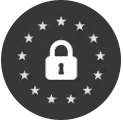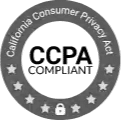How to Build an Impactful Sales Training Certification Program

Table of Contents
Executive buyers don’t want to talk to sales reps. According to Forrester Research, over 75% of buyers think sales reps are not knowledgeable about the business, do not understand where they can help and have no relevant examples or case studies.
Organizations typically invest heavily in creating marketing collateral, sales training materials and fireside chats for training. But how can you really know how proficient your sales team is in knowing your buyers and products?
Enter certification, often done by having the reps review video or written materials and completing a quiz; sometimes with webcam recordings that are then reviewed and scored by sales managers, or one-on-one real time training sessions with a sales manager. Or finally, practicing and testing with automated, AI-driven simulations.
Each of these certification methods has its advantages and disadvantages. Based on our conversations with hundreds of sales enablement employees, we’ve concluded that the three most important criteria for a certification process are:
- Ensuring certification environments emulate real life as much as possible
- Applying consistent scoring to every rep and session
- Keeping the process simple and easy to access so it can scale to the needs of the organization
Lets dive a little deeper into these considerations.
1. The Sales Training Certification Program Should Emulate Real Life
Quizzes and tests are the obvious way to “tick the box” that you have a certification, they’re easy to write and check, but do they really move the needle? You can ask a handful of questions before reps lose interest and passing a multiple choice quiz rarely reflects proficiency not to mention the ability to sell.
Selling is the art of conversation, which has to involve both talking and listening if it’s going to succeed. You need your reps to be able to ask the right questions, pick up on customer concerns and needs, and respond appropriately.
Certification should require your reps to practice a two-way, interactive dialogue, not just memorize a list of features. The rep needs to encounter objections and related questions that are similar to those they’d face in a real life sales call, so they can rehearse the best ways to deal with them. Ideally, that dialogue should take place with a coach or someone capable of pointing out weaknesses and mistakes so that the rep can correct them, proving real time guidance. So on-on-one training sessions or simulated interactive sessions are the best for this type of natural dialogue.
2. Score Sales Reps Consistently
If you want your reps to feel motivated to practice and improve, you need to provide ways for them to track their progress and see results. Consistent scoring is key, otherwise there’s no way for a rep to feel confident that they’ve actually increased their proficiency, rather than having caught the examiner on a good day. By nature, any certification program that is scored by a human being runs the risk of being inconsistent, meaning webcam recordings and one-on-one training sessions may encounter this.
When all your reps are evaluated on a level playing field, you can add ways to gamify the sales certification experience and encourage competition. A leaderboard that enables reps to compare performance is a great way of motivating lagging employees, especially when you rank reps by the improvement they’ve made or the effort they’ve put in, rather than by natural ability.
Ultimately, the best test of a sales training certification program is whether your reps advance in their skills and see the impact in hitting more quotas.
3. Make Your Sales Training Program Easy to Scale
One of the best ways to certify sales reps is to have them practice with a sales manager who can score their skills and deliver guidance in real time. But it’s also highly inefficient, requires coordinating a number of busy work schedules, and absorbs a lot of valuable work hours. Even sending recorded webcam conversations for managerial review requires managers to take time away from more urgent tasks.
A simpler system, that makes it easy for reps to practice whenever it’s convenient for them, means more reps will take advantage of it. This can be self-run learning sessions via videos, or interactive voice conversations simulated via conversational AI; either way they don’t have to wait until a human coach is available, and they can receive an immediate score for instant feedback. An automated, searchable knowledge base of sales best practices helps weaker reps to learn from stronger colleagues, and new hires to swiftly learn the inside tricks.
Automated sales training software can also enforce the minimum threshold for passing and keep following up regularly, without irritation, until every rep has reached the desired level.
How do the Leading Sales Certification Methods Stack Up?
With these three key factors in mind, let’s look at how different certification methods measure up. We’ve summarized and compared the four options discussed in the post in a table below.

As you can see, one-on-one training sessions and AI-driven simulation (options 3 and 4) deliver crucial real life simulations, while quizzes (option 1) and AI simulation (option 4) are the simplest methods with the most consistent scoring, thanks to removing human beings from the mix. Webcam recordings and one-on-one training sessions (options 2 and 3) require a huge operational investment, because of the vast number of work hours it requires for sales managers to review the recordings or carry out role plays for a full slate of reps.
The Certification Scalability / Effectiveness Matrix
Another mental model — and I do love mental models 

As you can see, the webcam recording and manager role play score very low on the scalability axis, since, well, they are hard to scale due to limited hours in the day to review recordings or run role plays. If you can add an AI-driven scoring method to webcam recording, it becomes more scalable, but still loses on the effectiveness axis since it doesn’t allow for natural dialogue. Quizzes, of course, are highly scalable, but less effective for the same reason. And AI simulations with AI scoring is both highly scalable and highly effective.
Ultimately, if you’re looking for a certification program that will make a dent in the numbers, and that will encourage reps to keep updating their knowledge and skills look no further than Second Nature. Our AI-driven simulations delivers a sales training certification program with authentic-feeling conversations, applies consistent scoring, and delivers real-time guidance that drives sales and revenue.
We’re Hiring
We have positions available in our Tel-Aviv and New York offices and remote/hybrid.

 8 MIN. READING
8 MIN. READING


